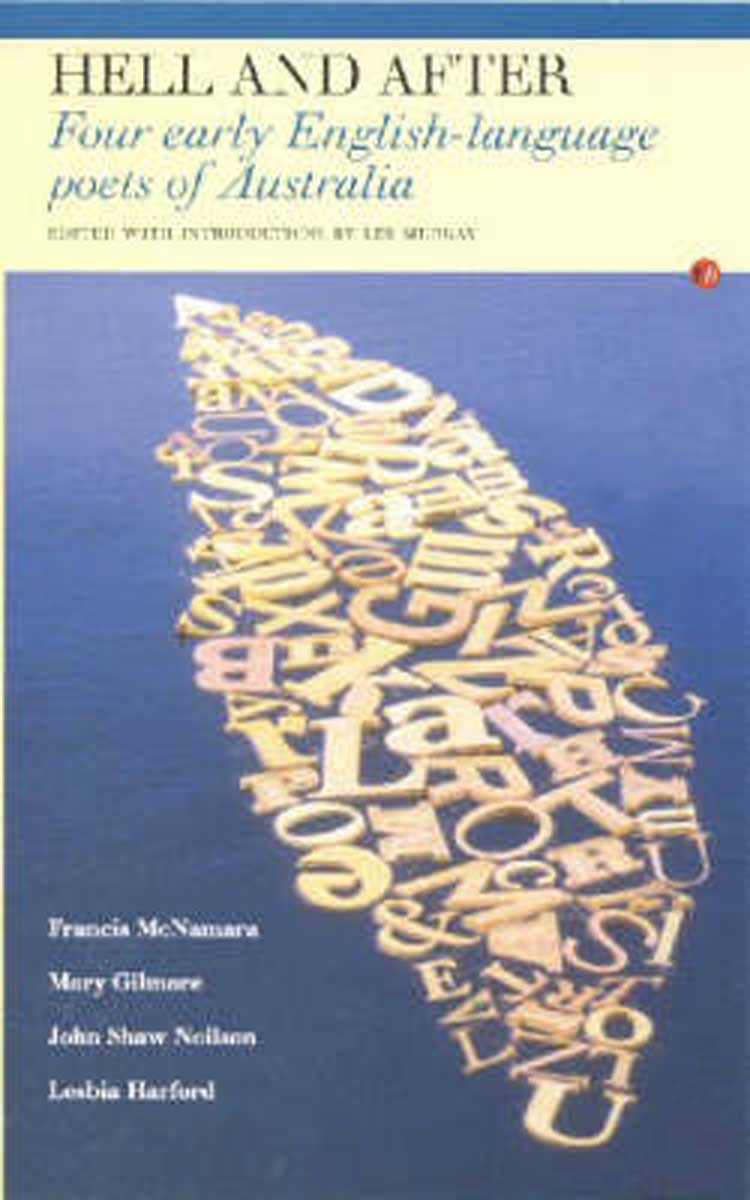Hell and After
Four Early English Language Poets of Australia
The first metropolis to be depicted in Australian literature was Hell: before cities existed in Australia, Francis McNamara, the convict poet, described the infernal one populated by those who tormented him and his fellow prisoners. Sentenced in 1832 to seven years' transportation to Australia for stealing a plaid, he survived the brutality of the penal system: his witty, rebellious poems laid the foundations for a new Australian poetry. Les Murray's anthology of poets from the early years of European settlement in Australia reaches back in time from his Fivefathers, which collected significant voices from the early twentieth century. Hell and After contains extended selections from the work of four poets: reading them is to experience a culture in the process of creating itself. Francis MacNamara (1811-1880), the only poet whose work has survived from the convict era, and three poets from the second half of the nineteenth century. Mary Gilmore (1865-1962) was born to a pioneering life in the bush; she became a social reformer and renowned figure in the Australian Labor Party, and her poems are much loved by Australians for their vivid evocations of colonial life. John Shaw Neilson (1872-1942), who spent most of his life as a manual labourer, wrote poems of great lyricism and humour under conditions of poverty and ill-health. Lesbia Harford (1891-1927), a radical activist who was one of the first women to graduate with a law degree from the University of Melbourne, worked as a factory machinist and domestic servant. Her poems give voice to a woman's experience of working life and private desire.
About the author
Les Murray was born in 1938 and grew up on a dairy farm at Bunyah on the north coast of New South Wales, where he still lives. He studied at Sydney University and later worked as a translator at the Australian National University and as an officer in the Prime Minister's Department. His real vocation was poetry, however, and from 1971 he has made literature his full-time career. He was the first Australian poet to achieve international acclaim without expatriation. Murray first visited Europe in the sixties, and has returned frequently since then to give poetry readings.
Carcanet publish his "Collected Poems" and his "New Selected Poems" (2012), as well as his individual collections, including "Subhuman Redneck Poems" (1966, awarded the T. S. Eliot Prize) and "The Biplane Houses" (2006), and his essays and prose writings in "The Paperbark Tree" (1992). His verse novel "Fredy Neptune" appeared in 1998 and in 2004 won the Mondello Prize in Italy and a major German award at the Leipzig Book Fair. He also edited "The Quadrant Book of Poetry 2001-2010".
Murray has special links with Scotland, and his Scots ancestors, whilst remaining an important and distinctive Australian writer. Blake Morrison, writing in the "Independent on Sunday", called Murray: "one of the finest poets writing in English today, one of the super league which includes Seamus Heaney, Derek Walcott and Joseph Brodsky", and C. K. Stead said of his poetry in the "London Review of Books": "It is wonderfully disciplined writing, offering what poetry and nothing else can offer, an art that arrests one's otherwise ever frustrated sense of the richness of the life that lives only for the moment".
In 1994 Murray was nominated for the Oxford Chair of Poetry and in June 1999 he was awarded The Queen's Gold Medal for Poetry at Buckingham Palace, an honour was recommended by the late Poet Laureate Ted Hughes.
Carcanet publish his "Collected Poems" and his "New Selected Poems" (2012), as well as his individual collections, including "Subhuman Redneck Poems" (1966, awarded the T. S. Eliot Prize) and "The Biplane Houses" (2006), and his essays and prose writings in "The Paperbark Tree" (1992). His verse novel "Fredy Neptune" appeared in 1998 and in 2004 won the Mondello Prize in Italy and a major German award at the Leipzig Book Fair. He also edited "The Quadrant Book of Poetry 2001-2010".
Murray has special links with Scotland, and his Scots ancestors, whilst remaining an important and distinctive Australian writer. Blake Morrison, writing in the "Independent on Sunday", called Murray: "one of the finest poets writing in English today, one of the super league which includes Seamus Heaney, Derek Walcott and Joseph Brodsky", and C. K. Stead said of his poetry in the "London Review of Books": "It is wonderfully disciplined writing, offering what poetry and nothing else can offer, an art that arrests one's otherwise ever frustrated sense of the richness of the life that lives only for the moment".
In 1994 Murray was nominated for the Oxford Chair of Poetry and in June 1999 he was awarded The Queen's Gold Medal for Poetry at Buckingham Palace, an honour was recommended by the late Poet Laureate Ted Hughes.


